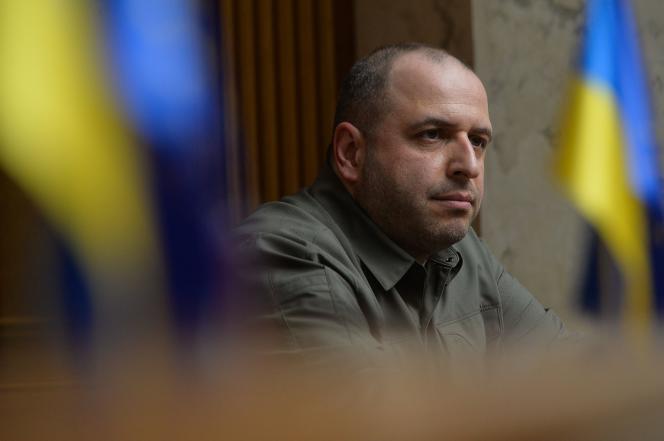Ln September 6, the Ukrainian Parliament approved, by 338 votes to 21, the appointment of Roustem Umierov as defense minister. The fact that he is the only Muslim in such a position on the European continent, appointed moreover by a president of Jewish origin, illustrates once again the profoundly modern character of Ukrainian nationalism which transcends community affiliations.
The promotion of a Tatar to such responsibilities also sheds light on the major role this minority plays in Ukraine’s resistance to Russian aggression and in its mobilization for the liberation of all occupied territories, including annexed Crimea. by the Kremlin in 2014. As Volodymyr Zelensky readily repeats, “it all started in Crimea and it will all end in Crimea”.
A very long history
In 1774, Catherine II conquered Crimea, whose khan, or sovereign, ruled over the Tatar population from the mountain city of Bakhchisaraï. The Crimean Tatars enjoyed, within the Ottoman Empire, a form of autonomy that Russia, despite its commitments, abolished by absorbing the khanate in 1783 under the name of Tauride province. Although Saint Petersburg encouraged Russian colonization, the population of Crimea still remained four-fifths Tatar in 1850.
It took the Crimean War of 1853-1856, where France and Great Britain engaged alongside the Ottomans, for Russia, defeated, to take revenge against the Tatars, judged – already – to be complicit with the Westerners. Colonial voluntarism caused the proportion of Tatars in the Crimean population to drop to a third in 1897. The collapse of the Russian Empire led, in 1917, to the proclamation of a People’s Republic of Crimea by the qurultay (the Tatar parliament), with Bakhchisaraï as its capital.
Both Crimea and Ukraine ultimately gave in to Lenin and Bolshevik expansionism. But it was Stalin who dealt the most terrible blow to the Crimean Tatars by accusing them of collaboration with the Nazis and by decreeing, in 1944, their collective deportation to Central Asia. The tragedy of this sürgünlik (exile), where a quarter to half of the Tatar population died, haunts the survivors and their descendants to this day. And it is in a Crimea now attached to Soviet Ukraine that Gorbachev authorized, from 1989, the return of at least two hundred and fifty thousand exiled Tatars.
Not only did the Tatars reconstitute their Parliament under the presidency of Moustafa Djemilev, but in 1991 they influenced Crimea’s 54% vote in favor of joining independent Ukraine. After the Russian invasion of 2014, the Crimean Tatars distinguished themselves by massively boycotting the referendum organized by the occupier to justify its annexation. This patriotic commitment has since made the Tatars pay a heavy price for Russian repression.
You have 40.84% of this article left to read. The rest is reserved for subscribers.
